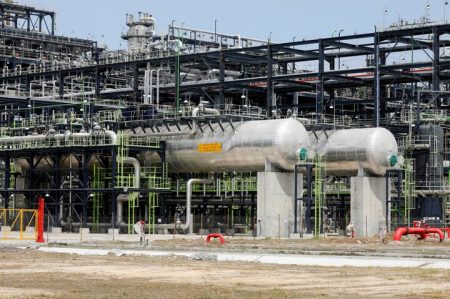13 December 2011, Sweetcrude, LAGOS — Legislators in Nigeria’s lower house of the National Assembly have expressed dissatisfaction with Federal Government’s reasons for wanting to remove subsidy on fuel.
Government said it planned to remove petroleum subsidy effective from next year, and use the savings for infrastructure development and for other social services.
However, the legislators believe that such excuses are not strong enough given that there are already huge budget for these purposes in the national budget.
Speaking with journalists on the sidelines of the World Petroleum Congress, WPC, which ended last week in Doha, the Qatari capital, the Chairman, House Committee on Petroleum Resources (Upstream), Hon. Yusuf Shittu Galambi, and his deputy, Hon Mashood Mustapha, said the lawmakers will not support subsidy removal until they are able to determine how the funds will be utilised.
Galambi asked, “If you say you want to fix infrastructure, what about the votes for capital expenditure? Even the 2011 budget for capital expenditure has not been implemented; yet you say you want to use subsidy money for infrastructure development.”
While noting that it is the executive’s right to initiate policies and make pronouncements on how to go about them, he argued that the lawmakers equally reserve the right to ensure that whatever decision to be taken is in the interest of the people.
Nigerians from all walks of life have continued to condemn the planned removal of petroleum subsidy, saying the move will increase the sufferings of Nigerians.
Against this backdrop, the legislators argued that government must first dispensed with the problem of infrastructure before withdrawing subsidy, as this is the only way to cushion the impact of the removal on poor Nigerians.
In this regard, Mustapha said: “The National Assembly is looking at all the issues because while government says only few are benefiting from the subsidy, others say removal of subsidy will mean more sufferings for the people.
“We are still discussing with the leadership of the National Assembly, and we are also discussing with our constituents. We are waiting for the plenary to know how to look at the various issues and if government brings the 2012 budget with the removal of subsidy, we will look at it and as representatives of the people we have to do what is in the interest of the generality of the people.”
The lawmakers argued that before supporting the subsidy removal, it would have to determine where the savings would go to.
But they also admitted that deregulation was the only way to attract fresh investments into the downstream, saying, “Deregulation is the answer, but the right things must be done first, because no businessman will invest in a regulated market because it means there is no free market and the security of your investments are not certain.”
Meanwhile, the lawmakers said they were in the process of harmonising all the versions of the Petroleum Industry Bill in the assembly, and noted that the bill would have to start another life cycle, as the previous bill elapsed with the tenure of the 6th Assembly session.
According to Galambi, “We will have to start from the beginning. As you know, the bill was presented to the 6th Assembly, but before we could finish work on it the session ended. There are about three versions of the bill, so we need to harmonise all of them.”
Mustapha concurred, saying, “A Bill automatically elapses at the end of the assembly session that treated it, so the PIB has to come back as a fresh bill, and given the controversies that surround it, we will have to look at all the issues and interests before we can pass the bill.”




